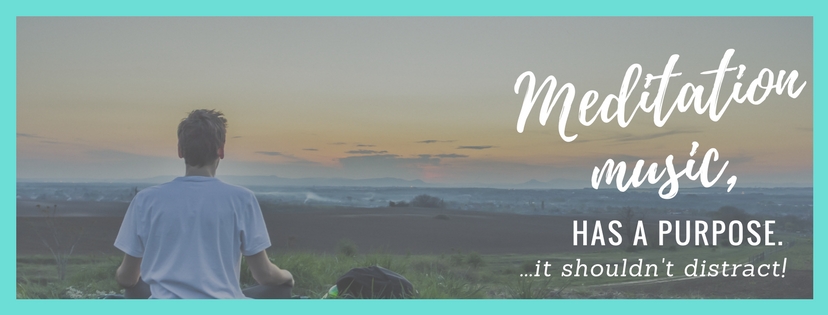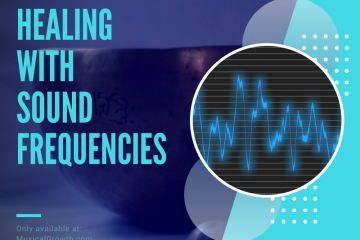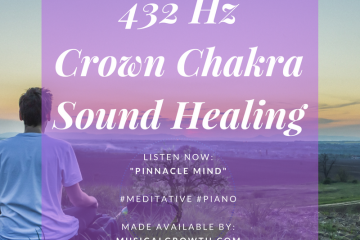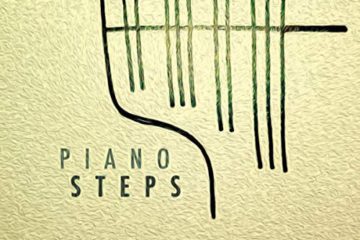If you’re looking for relaxing piano music, you need not scour the internet further. MusicalGrowth has their own playlist on YouTube and free to download on SoundCloud.
Below I’ll have a SoundCloud player inserted so you can listen to relaxing piano music straight from the browser.
Playlist
Here is the playlist of relaxing piano music made available through the SoundCloud player. I will continue to add to this as I write and produce more music, so please check back here and there for more music!
*If you haven’t already noticed, there’s a button with the “download” sign in the player itself. Click it to download the music straight from this page without having to visit SoundCloud!
About the Creation
If you’re curious about the music in the playlist, let me answer many of the questions you might have by stating that I am the composer, producer, and mastering engineer for all the music (so far) of MusicalGrowth.com. And by I, I mean me – Chase Chandler (About the Author).
My version of meditation has evolved over the course of my entire musical education, which as of today is about 18+ years (including 7 years of college-level education). Needless to say, music is a large part of who I am.
Improvization is a huge component to the music I release to the MusicalGrowth community for a few factors:
- Each piece is an” imprint” of the moments in time when I, myself, am currently “meditating”
- I’m breathing and shaping the notes and the music “in the moment,” offering organically evolved musical creations
- If playing the piano is calming to me, it might be calming to others as well
- I meditate almost every day – I might as well share it 🙂
Throughout my classical education, reading music was always the emphasis. But I could never turn away from practicing my improvization skills. I remember around 7 years ago, I would sit in the practice rooms for hours playing the same chords and the same progression over and over again to make sure there were no mistakes to distract from the “pretty” sound I created from nothing (since I was playing on an acoustic piano most of the time).
Back then, improvizing a short piece would always disappear into the air and no one would ever hear it again, not even myself. And the thought of those moments being experienced only once without having to share them with anyone, made them feel special and meaningful to me.
In hindsight, not sharing your music is selfish. Musicians tend to fight a mental battle of whether to share their music because (1) no one cares and (2) no one will “like” it.
With all my musical experience from conducting large choirs, hosting student recitals, singing in front of hundreds if not thousands, I find there’s no point in keeping your musical experiences to yourself. Maybe, just maybe, someone will appreciate the music I improvize on the piano and if there’s a person to gravitates toward the music I release, then it would have been worth sharing (even if its only a single person).
It’s better to make use of my musical meditation by sharing it with the community, then hiding it away never to be heard of again. At least that’s the way I think of it.
My Two Cents
Music plays a vital role in many peoples lives and it affects the others without them even knowing it. Unless you’re a hermit who lives under a rock, most like music is involved in your life.
Think about it – where can music be heard playing?
- Grocery stores
- Elevators
- Movie theaters & Hollywood movies
- When waiting to speak to support over the phone (on hold)
- In the car over the radio
- In the gym
- Etc.
Many companies and monopolies spend a fortune figuring out how they can manipulate their potential customers into buying more or staying relaxed. A great way they do this is through the music – have you noticed in every store, happy and “go-lucky” music is always playing (except for maybe Hot Topic)? Music affects us without being to obtrusive, such as bright images flashing in an advertisement.
Meditation music is an interesting genre. When referring to the Eastern world of true traditional meditation music, we may hear Tibetan singing bowls, Buddhist chants, drums, gongs, or even a melodic shakuachi. But with most things, the Western world has modernized the idea of meditation music to mean something of a quiet, thoughtful, and sometimes pandering nature.
I find there are a few things meditation music shouldn’t do:
- It shouldn’t distract the listener by being too fast-paced or involved in the number of instruments or timbres
- It shouldn’t use cheap electronic sounds or gross 80s pads
- Acoustically influenced sounds are best to invoke a sense of warmth, Earth, and nature
- It shouldn’t have a strong melody
- If there is a melody, it shouldn’t be too complex
- If there is a melody, it should be given enough time to develop more than a few measures
Music is always a fickle term, because everyone seems to have their own subjective and inarguable opinion about what “music” means. But if you’re interested in my definition of meditation music (after spending my whole life involved in music), please feel free to continue reading.

Defining Meditation Music
I, myself, define meditation music as any kind of combination of sounds that stimulates thought or focus. When done properly, the listener should experience an absence of time when they’re unaware of the minutes flying by. This to me, is meditation – when time is of no importance and the mind slows down to focus on the “now.”
The amazing thing about Buddhist spirituality is that it can be as flexible as you want as long as it helps you find the path to peace in the end ( a.k.a. enlightenment). So proper meditation music should aid you in meditation and not be actively distracting the mind with too many frills or embellishing sounds.
Meditation music is not about the composer “showing off” his skills in production or combining complex 20th-century harmonies. It is about aiding the listening in forgetting about time.
A visual artist paints on a blank canvas, but a composer paints on silence and time.
After doing a lot of research a few years back about Differences in Music within Buddhist Sects, there are three rules of Buddhist music that is generally accepted:
- Buddhist music should not be strictly for temples and monastic life but spread to the public.
- Music should be used to attract the public to study Buddhism, which means more advocation in the use of music.
- Buddhists should start to form bands, choirs, orchestra, classical music troupes, etc. to help spread the teachings of the Dharma.
Hopes for the Future
After seeing this music take shape over the course of a few months or years, I will take the songs that people respond to most and compile them into an album. Through CD baby, ASCAP/BMI, and SoundLAB, I’ll post this album on Spotify and other online streaming services to make it more available (and easily findable) to the public.
My hope is to help or maybe even just improve the lives of the most amount of people.
Conclusion
When it comes to art and music composition, subjectivity is hard to avoid when defining the proper “aesthetic” choices. But, meditation music has a purpose and is meant to be used as a tool – almost as a form of music therapy.
MusicalGrowth.com should never be the only source for meditation music that people should use, but I hope that it provides some high-quality choices. I will always give purpose to everything I wrote, both in terms of articles & reviews and musical creations.
What do you think?
Does the music I’ve created help you in any way?
Do I sound genuine? Because if not, please let me know. My goal is to sound as genuine as possible because I truly do not want to make the music on MusicalGrowth.com be about me.
I create and compose for you and the community. I just hope to be an instrument in providing aid in your meditation.
Please let me know your thoughts!
As always, thank you for reading.
Chase
Feb. 2018





12 Comments
Kenny · February 16, 2018 at 7:27 pm
Thank you for the playlist on relaxing piano music. I am someone who loves playing piano music especially when I want to relax after I long day at work. At times when I am looking for ideas for my blog, I will also play piano music to get the ideas coming. Do continue to add more music to your playlist to share with your readers. I will be keeping a look at this website for more piano music. Thanks!
Chase Chandler · February 16, 2018 at 8:28 pm
Hi Kenny! Thanks for the feedback – I tend to listen to relaxing piano in the morning to help kickstart the brain. I plan to continue updating my playlist, and I actually intend to add another song tomorrow morning! So stay tuned 🙂
Tim · February 16, 2018 at 10:09 pm
Hi Chase, I’m really enjoying your playlist. Thank you for making it available for listening. I look forward to hearing you on Spotify. All the best in the interim!
Chase Chandler · February 16, 2018 at 11:29 pm
Appreciate the kind feedback! Here’s to hoping for future Spotify exposure to help give more people the tool of relaxing music. Thanks for listening – I hope you find the music useful. Thanks Tim.
Arian · February 18, 2018 at 4:39 pm
I love your sounds! Is it all improv? It takes to a grander shift in my mind almost like I’m in outer space. I like the point you make in sharing your music. I know how it feels to not want to put your music out there and while many don’t care to listen, there are those will find inspiration in hearing your music.
Chase Chandler · February 18, 2018 at 5:35 pm
Hi Adrian! Yes, it is all improvised 🙂 basically snapshots of my current state of mind. Like a journal entry almost. I’m glad to hear you like the music! I’ll keep making more recordings for sure. Thanks for listening!
Andrew · February 19, 2018 at 1:55 am
I must admit that piano music has a class of it’s own. My late father could play the piano, he learnt to play by ear because he didn’t understand musical sheets. Some great masters come to mind like Liberace, music just flowed from his fingers.
Chase Chandler · February 19, 2018 at 7:51 am
Great story to share – I’ve spent my whole life studying how to read, interpret, and compose music but there’s still such a freedom when playing by ear. Thanks for sharing your thoughts!
Avareth · February 20, 2018 at 12:31 pm
I just started playing this playlist, and so far I’m really enjoying it. I love that improvisation plays a big part in your creating because improv music impresses me more than anything. I’ll definitely be listening to your playlist when I need to relax and just breathe. Thank you for sharing.
Chase Chandler · February 20, 2018 at 12:48 pm
Oh, I’m really glad to hear you like the music. I do hope it helps in your attempts to relax – thanks for sharing your positive words of encouragement 🙂 Best of luck with everything and feel free to stop by whenever you’d like! You or can read more about my process through specific articles I’ve written, such as “Wind Chimes” ~
Sunny · February 24, 2018 at 3:36 pm
Wow, Chase. What an inspiring article. First of all, I love your music. I immediately felt the calming effects. When you mentioned these are you improvising while meditating, I immediately visualized that and felt like I was meditating through you. I hope this sounds sincere, because it truly is. I will bookmark this page and come back to it. This music is the perfect, calming background for my stressful world. Thank you so much for being a musician who shares.
Chase Chandler · February 24, 2018 at 8:32 pm
Aw that means a lot! Thank you so much for sharing your thoughts with me! I really do hope you come back and listen – musicians aren’t musicians without an audience. Appreciate the feedback 🙂 I’m really happy to hear you felt calm after listening to the music!